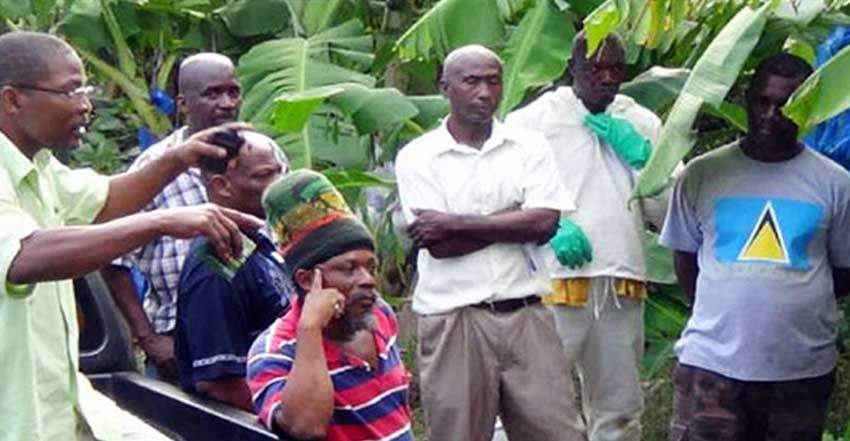
On Friday, about 405 banana farmers affected by the Black Sigatoka disease received cheques to help them regain their footing.
With a strong commitment to aiding farmers, government officials distributed more than $1 million to help these planters overcome the disease and economic difficulties they faced last November.
This is the second provision of funding this year expressly for banana producers to assist them recover from the effects of natural disasters.
“We are fulfilling our promise to provide a ‘Relief Package’ to our banana farmers impacted by the disease by the end of March,” Agriculture Minister Alfred Prospere stated during a media briefing this week.
He underlined that the subsidies are intended to aid farmers in returning to production rather than compensate them. Farmers’ total losses from the disease were expected to be around EC $7 million, with the government allocating EC$1.8 million in support.
Furthermore, the minister claimed that the government had purchased 66,000 gallons of’spray oil’ and began distributing it to farmers around four weeks ago. “So far, we have distributed approximately 6,500 gallons to banana and plantain farmers free of charge,” he said.
Minister Prospere emphasised the importance of the banana sector in Saint Lucia’s socioeconomic growth, particularly in rural regions. He stated that between March and April of last year, the government allocated EC $1 million to assist farmers hit by a box scarcity and is currently providing additional assistance.
“The assistance provided will empower farmers to undertake necessary operations and restore their farms to optimal productivity, ensuring the quality of bananas required for export,” Prospere stated.
He emphasised the importance of the ‘One Banana a Day’ campaign, which aims to help about 6,000 students in Saint Lucia. “This initiative presents an excellent opportunity to utilise bananas in schools, given their nutritional value, and create a new local market for our farmers,” he exclaimed.
Addressing the impact of recent issues on banana exports, Minister Prospere stated that the disease has reduced the amount of banana boxes exported, whereas previously they exported 6,000 to 7,000 boxes weekly to nations such as Barbados, Trinidad & Tobago, and Antigua.
Currently, the National Fair Trade Organisation (NFTO) is actively collaborating with Martinique stakeholders to identify new market potential for local fruits. While some growers continue to export bananas, the volume is drastically reduced due to the damage caused by the Black Sigatoka illness.
Despite these problems, Prospere emphasised the need of preserving the regional market, highlighting the Canadian market where green bananas are exported.
He voiced hope, noting that with the availability of’spray oil’ in the next months, the industry should be able to resume normal operations.
“Within the next three or four months, we should be back to normal,” the minister said.













